Your Superfood Cheat Sheet with David “Avocado” Wolfe

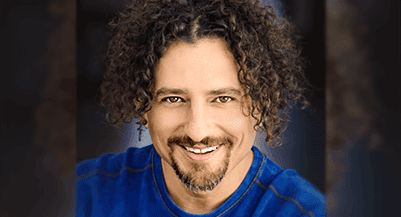
David “Avocado” Wolfe
Living in the information age comes with a price. That price is overwhelm. We are drowning in data, and we desperately want to know who and what we can trust online. Especially when it comes to high stakes issues, such as our health and longevity. It’s important to be discerning, to not simply accept conventional wisdom, and to assess the incentives that may influence a health expert’s position on a topic.
One of the biggest factors in our health is the food we eat. Honestly, how much of what you consume is nutrition-dense? Hey, I’m guilty too. But armed with some new, well-curated information, you’re about to get healthier, my friend. That’s because my guest for this episode 226 is David “Avocado” Wolfe.
He’s a nutritionist, a super foodist, an orator, an herbalist, a chocolatier, and an organic farmer. You probably heard his name before, but if you haven’t, he’s a big deal on social media. He has a following on Facebook of 12 million. He’s the Indiana Jones of the superfoods and longevity space. David has over 25 years of experience, and he’s hosted 3000 live health events.
I’m excited for you, because you are about to become a superfoods aficionado. Let’s get on with it
Intensify Your High-Intensity Training with Ratna Singh and Ulrich Dempfle
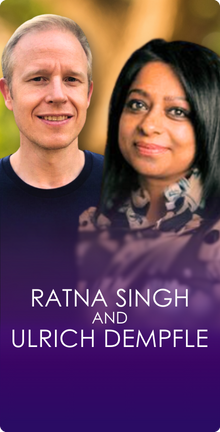
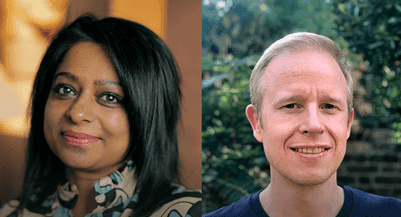
Ratna Singh and Ulrich Dempfle
I’m really excited about this episode of Get Yourself Optimized because I was in full immersion into using the device we are going to talk about and I think it’s going to be pretty interesting and potentially transformational for you, listeners. My two guests for this episode are Ratna Singh and Ulrich Dempfle.
Ratna is the founder and CEO of CAR.O.L. She is a microbiologist, a McKinsey consultant, and an advertising guru with two kids. She never had the time to exercise until she invented CAR.O.L. Jogging was an option so with this stationary bike, called CAR.O.L with AI, she’s transforming the fitness industry.
Dave Asprey loves this bike. I had a personal conversation with him about it. This isn’t just hype. He actually does endorse it privately so I was pretty impressed. Ratna invented CAR.O.L to solve the world’s fourth deadliest problem, inactivity.
Ulrich is also a founder and the Chief Product Officer. He is a serial entrepreneur. He’s an ex-Price Waterhouse Cooper‘s director, and leading machine learning and AI in the healthcare space. He is also an ex-McKinsey senior engagement manager and a mechanical engineer.
The Hazards of Everyday Products with Dr. Anthony Jay

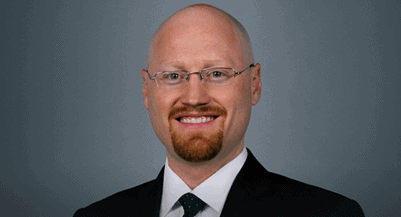
Dr. Anthony Jay
Many diseases today are caused by hormonal imbalances and the common denominator, the chemicals found in our food and personal care products. These nasty chemicals can cause diseases like cancer, obesity and Alzheimer’s. Some have even been linked to depression. Before you place a product in your shopping cart, you need to know what it’s made of and whether the manufacturer can be trusted. Furthermore, your genetics can play a pivotal role in whether that product is good for you or bad for you. So it really pays to have your DNA analyzed.
My guest for this episode number 224 is Dr. Anthony Jay. He’s a Mayo Clinic scientist, DNA consultant and author of the book, Estrogeneration, which is all about how estrogenic substances are messing with our biology. Anthony hosts the Chagrin and Tonic YouTube show and podcast and he has a Ph.D. in biochemistry. It’s time to get savvy about what you put in and on your body and what’s in your genes. You owe it to yourself and to the generations that will follow you. So let’s get into it.
Maximize Your Profitability with Mike Michalowicz
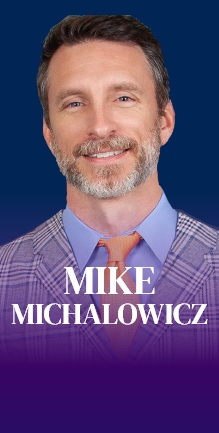
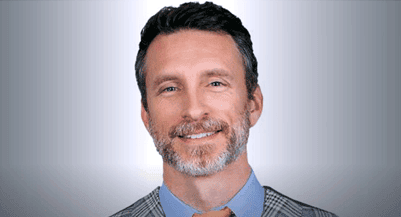
Mike Michalowicz
Entrepreneurs tend to showcase their successes and hide their screwups. Yet the mistakes, and what the entrepreneur learned from them, are arguably what brought on the success. It’s those failures that really hone one’s skills and intuition.
One man who’s been honest about his missteps on the road to success in the hopes of helping others is Mike Michalowicz. In some ways, Mike and I have lived parallel lives, starting out with technology businesses in the 90s that we built up and eventually sold, moving on to a life of consulting, speaking, and publishing books.
Mike is the author of six books, including Profit First and Clockwork, and the host of the Entrepreneurship Elevated Podcast. He has appeared on NBC, MSNBC, Fox News, ABC News Now, and CNBC’s On the Money.
One of the most powerful business lessons I have learned from Mike is the principle of taking your profit first. This is the opposite of the conventional approach to business, where the profit comes last after you deduct expenses from top-line revenue. Essentially, you’re taking your cut first, and then hiding it from yourself so you’re not tempted to spend it. It’s a simple idea but it will transform your business.
That’s just a tiny fraction of Mike’s wisdom, and on this episode number 223, you’re going to get years of experience in entrepreneurship distilled into one incredible hour. You don’t want to miss this!
Biohacking Your Brain, Heart, and Overall Health with Dr. Joe DiDuro
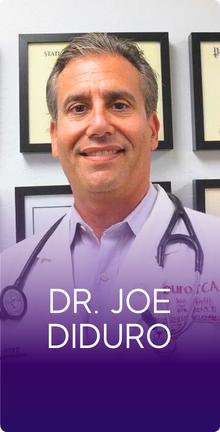

Dr. Joe DiDuro
Of all the organs in the human body, the brain is arguably the most important, yet we still don’t understand exactly how it works. When it comes to diseases of the brain, like Alzheimer’s and other types of Dementia, there are no cures and oftentimes, treatments focus on managing symptoms rather than stopping or slowing the disease. Dr. Joe DiDuro has treated many patients with neurodegenerative diseases and has seen firsthand just how devastating they can be to every aspect of a person’s life. As a chiropractic neurologist and founder and president of the Neuropathy Treatment Centers of America, Dr. DiDuro has made it his life’s work to end the suffering of patients with neurodegenerative diseases.
This has led him to develop a new treatment called Photobiomodulation, which uses light to stimulate neuro tissue and regenerate neural activity. Early testing has shown promise that the treatment may be able to reverse the effects of neurodegeneration. On this episode number 222, will be talking about Dr. DiDuro’s amazing discovery and he’ll be providing plenty of practical advice on brain health and overall health and longevity, including how to have an incredible HRV or heart rate variability score. This is an episode every biohacker and anti-aging aficionado needs to listen to. Join us.
Breaking Free from Unhealthy Patterns with Robyn Firtel


Robyn Firtel
We are all imperfect humans, so we can’t expect to have had perfect parents or caregivers. Most parents do the best they can. It’s just an unfortunate reality that we as their children experienced trauma at their hands. Anything less than nurturing is trauma so the bar is pretty low. We have all experienced trauma in our childhoods. These traumas can still affect us mentally, emotionally, and spiritually. They can show up in our work, our relationships, our parenting and even our sense of self-worth.
My guest for this episode number 221, is Robyn Firtel, a phenomenal psychotherapist who I get to experience firsthand at a Secret Society intensive run by the author, Neil Strauss. Invited personally by Neil, Robyn blew me away with her insights and her exercises, including chair work, which we will be talking about in this episode. Robyn specializes in post induction therapy and the treatment of codependency, addiction, trauma, and relationship issues. She’s A student of the internationally renowned Pia Mellody. In this episode, Robyn and I will take a deep dive into childhood trauma, taming your inner demons, unhealthy patterns, including codependency and therapeutic models. This is going to be a groundbreaking episode that everyone needs to hear, including you. So let’s get started.
Achieve High-Quality Sleep with James Swanwick
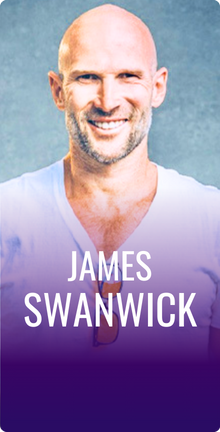
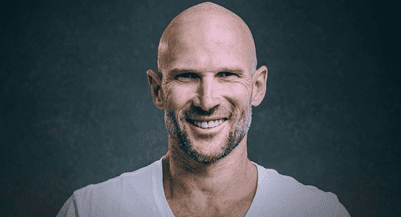
James Swanwick
Sleep is essential if you want to maintain stamina, achieve peak performance during your workday, and not get sick like I am right now. Unfortunately, our natural sleep patterns get disrupted by TVs, laptops, and cellphones that we look at for hours each day. Blue light emitted from the screens of these devices have been shown to delay the release of melatonin to make you more alert and to reset your body’s internal clock. When you’re exposed to blue light before bed, it takes you longer to fall asleep. You have less REM sleep and you often wake up feeling groggy.
One option to combat the effects of blue light is to impose a digital curfew on yourself. But we’re so reliant on our devices that this can be difficult. Another option is simply to get yourself a pair of blue light blocking glasses, like those developed by my guest for this episode number 220, James Swanwick.
James began his career as a journalist in Australia, eventually moving to Los Angeles where he worked as an ESPN SportsCenter anchor and interviewed A list celebrities like Bradley Cooper, Al Gore, and many champion athletes. Although successful, James struggled with sleeplessness throughout his career. Desperate for a solution, he tried everything from herbal remedies to changing his diet without success. Until he discovered a research on blue light exposure. Came to share his discovery with the world, James partnered with his brother Tristan in to create Swanwick Glasses. And after an extensive testing process, they launched their blue light blocking glasses to help people around the world improve their sleep quality and their lives.
James and his glasses have been featured in The New York Times, GQ, BuzzFeed and Men’s Health. James is also the creator of the 30-Day No Alcohol Challenge and host of The James Swanwick Show. If you’ve ever had trouble getting a good night’s sleep, you’re going to want to hear what James has to say. Let’s get this party started!
The Era of Information Overload with David Shenk


David Shenk
Way back in the 90s, in the early days of my first startup, Netconcepts, I read a book that changed how I viewed the information technology revolution. It was called Data Smog: Surviving the Information Glut. I never forgot that book. In fact, I recently looked up the author to see what he’s up to these days. And what came out of that was well, this episode number 219. It’s my pleasure to welcome to the show my guest today, David Shenk.
He’s author not only of the book Data Smog, but many other books, including The End of Patience, The Genius in All of Us, The Immortal Game, and The Forgetting. His books covered topics as diverse as the history of Chess, Alzheimer’s disease, and the Grateful Dead.
David is also a filmmaker, and he’s the creator and executive producer of the Living with Alzheimer’s film project. He’s a contributor to National Geographic, Slate, The New York Times, Wall Street Journal, The New Yorker, the Atlantic, and many more.
David was ahead of his time; Data Smog nailed it as far as predicting the negative repercussions of living in an information-saturated world. On this wide-ranging episode, David and I discussed the effects of information overload, including his thoughts on the way it impacts politics and the environment. We also get into the nature of genius, genetics, and Alzheimer’s. It’s a fascinating episode with a fascinating guest. Enjoy!
You’re Too Easily Distracted and It’s Ruining Your Life with Nir Eyal
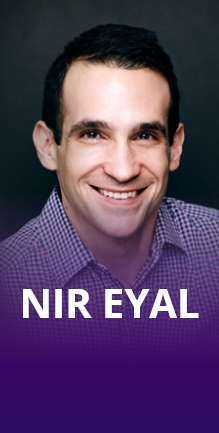
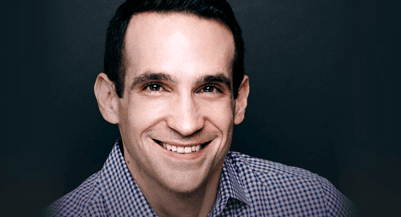
Nir Eyal
Put down that phone! How many times a day do you find yourself scrolling Instagram or Facebook? If you are hopelessly addicted, don’t feel too bad. These apps are designed to get you hooked and keep you coming back for more. You’re just one of the millions who spend their days staring at a screen. But to believe that these apps have figured out some magic formula that we will never be able to escape is simply not true. It turns out that, instead, they’ve just learned to manipulate our personal triggers. Thankfully, we can hack our own triggers to remove distractions to live more intentionally, and to live a more fulfilling and productive lives.
My guest today on this episode number 218 is Nir Eyal, and his new book is about this exact topic. It’s called Indistractable, and it’s all about how you can regain control over the technology that is trying to control you. Nir is also the author of Hooked, the founder of two tech companies, and has taught at the Stanford Graduate School of Business and the Hasso Plattner Institute of Design at Stanford. The MIT Technology Review dubbed Nir as the prophet of habit-forming technology. Join us for a fascinating discussion that dives deep into the psychology of attention and why our apps have such an insidious hold over us. The secrets to being more productive, and why you should always plan out your workweek.
Beating Cancer with Michelle Patterson

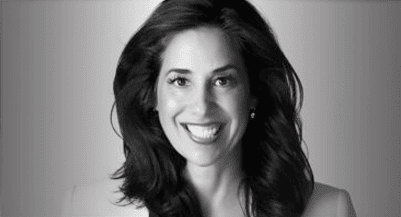
Michelle Patterson
There’s an Indian proverb that goes something like, “A healthy person has many wishes, but the sick person has only one.” Statistically speaking, we in the Western world are most likely to die from cancer. Yes, cancer recently surpassed heart disease as the biggest killer. It really is no longer viable to stand idly by without taking some proactive actions to prevent cancer and to innovatively treated if you have it. We all have cancer cells in our bodies circulating in our bloodstream. It’s just that our immune system is keeping that in check. Well, until it doesn’t.
My guest today for this episode number 217 is Michelle Patterson. Michelle is the founder and CEO of the California Women’s Conference. If you’ve ever gone you know how huge this event is. But now Michelle is on a wellness sabbatical from her business, as she was diagnosed earlier this year with stage four breast cancer. Don’t worry about her though, as she is defying the odds and you’re about to learn how. Michelle was on a mission to help women truly own their health and put their own oxygen mask on first. Her goal for 2020 is to build a community of 1 million women united by cannabis as a healing plant medicine. Get ready for a frank discussion that may just one day save your life.